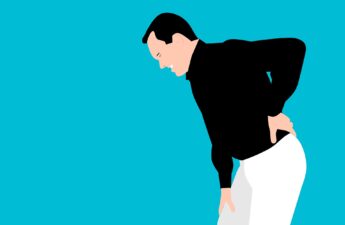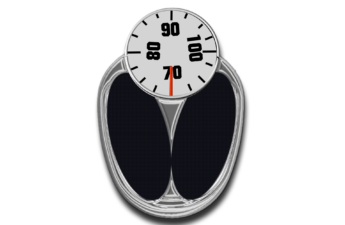Category: Fitness
Running on empty: Female athletes’ health and performance at risk from not eating enough
When the energy consumed from food becomes insufficient to meet the demands of high physical activity levels, a state of imbalance occurs called low energy availability. Low energy availability can disrupt hormones and metabolism in as little as five days.
Planks and wall sits are best for lowering blood pressure – here are six more reasons they’re such great exercises
Each sessions consisted of four two-minute bouts of isometric exercises–such as doing planks or wallsits–with a one-to-four minute rest period between each. The resulting blood pressure reduction was comparable to that seen in people taking standard blood pressure medication.
Seven techniques to avoid weight regain, approved by experts
Losing weight is challenging. But as anyone who has ever successfully lost weight knows, it’s avoiding weight re-gain that’s the real challenge. But while weight regain may be a common experience, that doesn’t mean there aren’t many evidence-backed things you can still do to prevent it in the long run:
Addressing obesity, smoking and workplace ergonomics could cut the burden of low back pain by 39%s
Low back pain has ranked first among causes of disability for the last three decades. Back pain, however, is not inevitable, even if that sometimes feels like the case.
Australian study links holiday feasting to yo-yo weight gain
Easter, a time of chocolate eggs and hot cross buns, saw a an average gain of about 244g (0.29% of average participant body weight). The Australian summer months associated with Christmas and New Year, feasts and festivities, had an even larger average increase of approximately 546g (0.65% of average participant body weight). We also found a weekly cycle, with weight peaking on the weekend, when many people are likely letting their hair down after a busy work week and may be drinking and eating more.
Good news for ‘weekend warriors’: people who do much of their exercise on a couple of days still get heart benefits
If it is difficult or impossible to find time to be active during a busy week, it is good enough to plan moderate to vigorous physical activities in a couple of weekdays or on the weekend.
Fiber is your body’s natural guide to weight management, say UW expert
Rather than cutting carbs out of your diet, eat them in their original fiber packaging instead
Intermittent fasting and calorie counting about equal for weight loss – new study
Is intermittent fasting any better than calorie counting for losing weight? A new study, published in the Annals of Internal Medicine, aimed to provide the answer. It showed that the two methods could be equally effective – if undertaken with professional counselling.
Preventive healthcare is effective – lessons from Finland, Japan and Singapore
Promoting healthy lifestyles, early disease detection and timely treatment could reduce chronic diseases such as type 2 diabetes, heart disease and cancer. And reducing the number of people with these chronic conditions would lead to a significant decrease in healthcare spending – which has been steadily rising in real terms.
Dementia linked to repetitive brain trauma diagnosed in a female athlete for first time
Chronic traumatic encephalopathy (CTE) is a devastating form of dementia which causes a decline in brain functioning and increased risk of mental illness. It is increasingly associated with athletes who play contact sports, such as football, boxing and martial arts.
BMI alone will no longer be treated as the go-to measure for weight management – an UW obesity expert explains
Ultimately, BMI cannot provide doctors with precise information about the portion of body weight composed of body fat, nor can it tell us how that fat is distributed in the body. But this distribution is important because research has shown that fat stored around the internal organs has significantly higher health risks than that distributed in the extremities
New drugs that melt away pounds present more questions than answers but could be key tools in reducing the obesity epidemic
While these medications hold promise, they are not wonder drugs. In my view, they warrant much more research before they become the basis for a new weight management protocol.
It’s time to bust the ‘calories in, calories out’ weight-loss myth
One reason the simple “calories in, calories out” formula is not so simple is our bodies don’t consume every calorie the same way. What’s shown in your calorie counter is not what’s actually absorbed in your body. Different calorie sources also have different effects on our hormones, brain response and energy expenditure, changing how we respond to and manage our food intake.
Body dysmorphic disorder: what to know about this mental health condition
Actress Megan Fox recently revealed she had body dysmorphic disorder. Many people are dissatisfied with some aspect of their appearance, but people with body dysmorphic disorder are consumed for several hours a day by intrusive thoughts and feelings about their perceived flaws.
It’s time to leave the Paleo Diet in the past: Recent studies have failed to support its claims
The Paleo Diet has been a worthwhile experiment, but at this point it seems likely that people following it might just be wasting money. Conventional, government-recommended diets offer comparable outcomes at a lower cost. In our view, it’s time to leave the Paleo Diet in the past.












